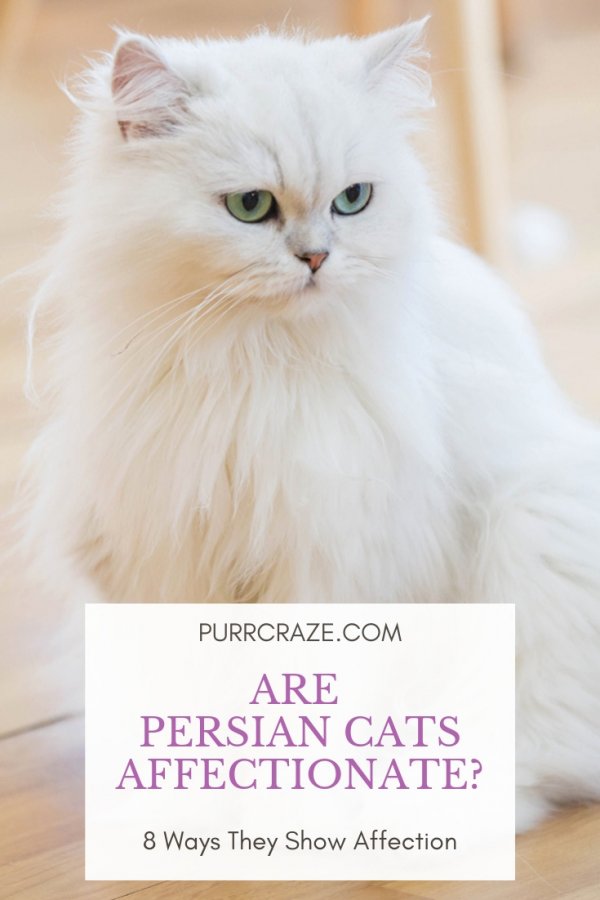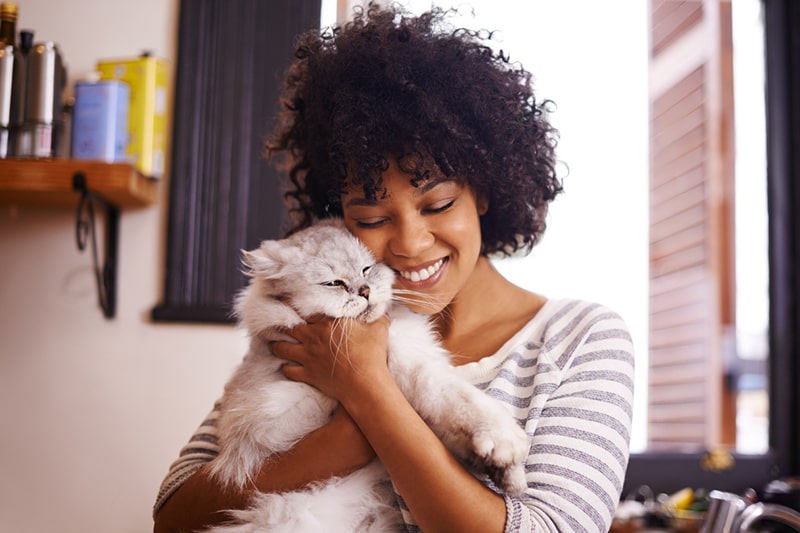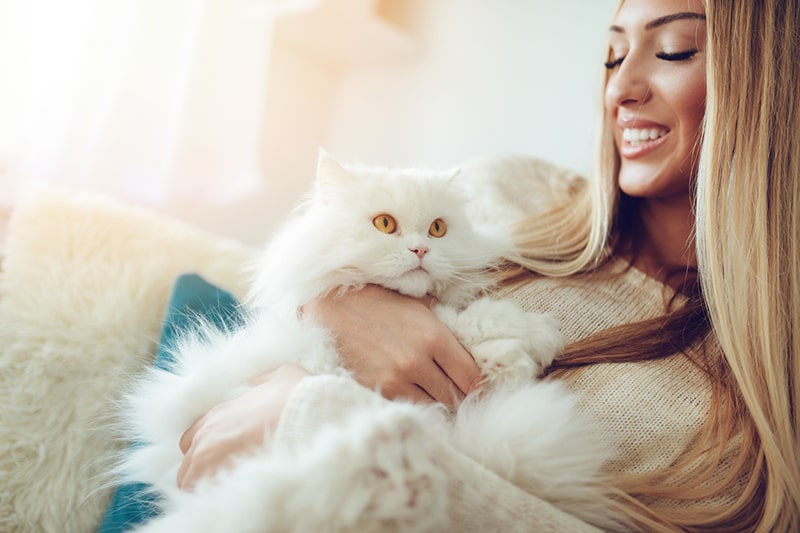Have you ever wondered about the unique relationship between Persian cats and their owners? These majestic felines have a reputation for being gentle and affectionate, often forming strong bonds with their human companions. In my blog, “http://persiancatdude.com”, I explore the fascinating world of Persian cats and their interactions with their owners. From their distinct personality traits to their grooming needs, there is so much to learn about these beautiful creatures.
In my upcoming posts, I’ll be delving deeper into this topic, sharing insights and information that will captivate and educate my readers. Whether you’re a proud owner of a Persian cat or simply curious about these elegant creatures, you’ll find something in my blog that piques your interest. Stay tuned for discussions on the history of Persian cats, their dietary requirements, and tips on how to create a nurturing environment for your Persian companion. I’m excited to share my passion for Persian cats with you and help you better understand the nuances of this incredible bond between cats and their owners. Join me as we embark on this delightful journey together!

Persian Cats and Their Relationship with Their Owners
Persian cats are known for their beautiful, long-haired coats and captivating appearance. They have been popular pets for many decades, and their owners often form deep bonds with them. In this article, we will explore the relationship between Persian cats and their owners, as well as provide valuable insights into their care, behavior, training, and more.

Grooming Needs of Persian Cats
One of the most distinctive features of Persian cats is their luxurious, silky fur. However, this beautiful coat requires regular grooming to keep it healthy and tangle-free. As an owner, it is essential to invest time and effort into grooming your Persian cat. Regular brushing, bathing, and periodic visits to a professional groomer will help maintain the coat’s beauty and prevent matting.
Questions and Answers:
-
How often should I groom my Persian cat?
- It is recommended to brush your Persian cat’s coat daily to prevent tangles and matting.
-
Can I bathe my Persian cat at home?
- Yes, you can bathe your Persian cat at home, but be sure to use cat-specific shampoo and rinse thoroughly.
-
Should I trim my Persian cat’s fur?
- Trimming the fur around your Persian cat’s face and bottom can help prevent hygiene issues and improve their overall comfort.
-
What tools do I need for grooming my Persian cat?
- Some essential grooming tools for Persian cats include a slicker brush, wide-toothed comb, grooming scissors, and cat-specific shampoo.
-
How can I prevent my Persian cat’s fur from matting?
- Regular brushing and grooming, along with maintaining a healthy diet and providing appropriate hydration, can help prevent matting of the coat.
-
Should I consider professional grooming for my Persian cat?
- Professional groomers have experience in handling Persian cats’ grooming needs and can provide valuable insights and services. It is recommended to take your Persian cat to a groomer periodically.
-
What should I do if I find matting in my Persian cat’s coat?
- If you find matting in your Persian cat’s coat, it is best to seek professional help to avoid causing any discomfort or accidental injury to your cat.
-
How long does grooming a Persian cat take?
- Grooming time can vary depending on the length and condition of your Persian cat’s coat. However, expect to spend at least 15-30 minutes daily on grooming.
-
Are there any specific techniques to brush a Persian cat’s coat?
- Brushing the coat in the direction of hair growth and using gentle, but firm strokes can help remove tangles and keep the coat healthy.
-
Can I groom my Persian cat while it is shedding?
- Yes, regular grooming during shedding seasons is crucial to remove loose hair and minimize shedding around the house.

Feeding and Nutrition for Persian Cats
The diet of a Persian cat plays a vital role in maintaining their overall health and well-being. As a responsible owner, it is important to provide your Persian cat with a balanced and nutritious diet that meets their specific dietary requirements. High-quality cat food, formulated for long-haired breeds, can provide the necessary nutrients for a healthy coat, strong immune system, and proper growth.
Questions and Answers:
-
What is the best diet for a Persian cat?
- A balanced and nutritionally complete cat food, specifically formulated for Persian cats, is ideal. Look for high-quality ingredients and consult with your veterinarian for specific recommendations.
-
Can I feed my Persian cat a homemade diet?
- Preparing a homemade diet for your Persian cat can be challenging, as it requires a deep understanding of feline nutrition. It is best to consult with a veterinary nutritionist before opting for a homemade diet.
-
How many times a day should I feed my Persian cat?
- Persian cats generally do well with two or three small meals throughout the day. This helps prevent obesity and maintains their energy levels.
-
Should I feed my Persian cat wet or dry food?
- Both wet and dry cat food can be included in your Persian cat’s diet, but it is important to ensure that they are receiving an adequate amount of moisture from their food.
-
Can I give treats to my Persian cat?
- Treats can be given occasionally, but it is essential not to exceed the recommended daily calorie intake. Look for treats specifically made for cats and avoid human foods that can be harmful to them.
-
How much water should my Persian cat drink?
- Persian cats generally have low thirst drive, so it is important to provide fresh water at all times. Consider using a water fountain to encourage them to drink more.
-
Are there any specific dietary requirements for Persian kittens?
- Persian kittens require a diet that supports their rapid growth and development. Consult with your veterinarian to ensure they receive appropriate nutrition.
-
Should I consider a grain-free diet for my Persian cat?
- Grain-free diets have gained popularity in recent years, but it is important to note that grains are not harmful to cats. Consult with your veterinarian before making any dietary changes.
-
Can I supplement my Persian cat’s diet with vitamins or supplements?
- It is generally not necessary to supplement a well-balanced cat food diet. Consult with your veterinarian before adding any supplements to your Persian cat’s diet.
-
What signs should I look for to ensure my Persian cat is getting proper nutrition?
- Shiny and healthy coat, good energy levels, and a stable weight are some indicators that your Persian cat is receiving proper nutrition. Regular veterinary check-ups can also help monitor their overall health.

Exercise and Playtime for Persian Cats
While Persian cats are known for their calm and laid-back nature, they still need regular exercise and playtime to maintain good physical and mental health. Engaging in interactive play sessions with your Persian cat can help keep them active, prevent obesity, and strengthen the bond between you and your furry friend.
Questions and Answers:
-
Do Persian cats require exercise?
- Persian cats may not be as active as some other breeds, but regular exercise is still important to keep them healthy and prevent weight gain.
-
How often should I play with my Persian cat?
- It is ideal to have at least one interactive play session with your Persian cat every day to provide mental stimulation and physical exercise.
-
What are some interactive toys for Persian cats?
- Toys that encourage chasing, pouncing, and hunting instincts, such as wand toys, feather teasers, and interactive puzzle toys, are great options for Persian cats.
-
Can I play with my Persian cat using laser pointers?
- While laser pointers can be entertaining, it is important to provide a physical object for your Persian cat to catch and play with. Ending the play session with a physical toy can prevent frustration.
-
Are there any specific exercise routines for Persian cats?
- Persian cats can enjoy gentle exercise routines, such as chasing a toy or playing hide-and-seek. Avoid excessively strenuous activities.
-
Can I train my Persian cat to walk on a leash?
- Training a Persian cat to walk on a leash is possible, but it requires patience and gradual acclimation. Consult with a professional trainer for guidance.
-
What are the benefits of exercise for Persian cats?
- Exercise helps maintain a healthy weight, keeps joints flexible, prevents boredom, and provides mental stimulation for Persian cats.
-
Can I use catnip to encourage exercise and playtime?
- Catnip can be used to encourage playfulness in Persian cats. However, not all cats are affected by catnip, so observe your cat’s reaction before incorporating it into playtime.
-
How long should each play session with my Persian cat last?
- Play sessions with Persian cats can range from 10-20 minutes, depending on their energy levels and interest.
-
Can I use technology-based toys for playtime with my Persian cat?
- Yes, there are various interactive cat toys available that incorporate technology, such as automated laser pointers and motion-sensitive toys. These can be used to engage your Persian cat in playtime.

Healthcare and Veterinary Visits for Persian Cats
Ensuring the health and well-being of your Persian cat involves regular veterinary check-ups and preventive care. Due to their unique physical characteristics, Persian cats are prone to certain health issues that require special attention. Regular vaccinations, dental care, parasite prevention, and early detection of any potential health problems are crucial in maintaining the overall health of your Persian cat.
Questions and Answers:
-
How often should I take my Persian cat to the veterinarian?
- It is recommended to schedule veterinary visits at least once a year for routine check-ups and vaccinations.
-
Can I groom my Persian cat during veterinary visits?
- Many veterinary clinics offer grooming services, but it is best to schedule a separate grooming appointment to avoid confusion and stress for your Persian cat.
-
Should I consider pet insurance for my Persian cat?
- Pet insurance can help offset the cost of unexpected veterinary expenses. It is worth considering, especially for issues that are common among Persian cats.
-
What vaccines does my Persian cat need?
- Core vaccines, such as rabies and feline distemper, are essential for all cats, including Persian cats. Consult with your veterinarian for specific vaccine recommendations.
-
How can I reduce stress during veterinary visits for my Persian cat?
- Using a comfortable carrier, familiarizing your cat with the carrier before the visit, and using pheromone sprays or calming aids can help reduce stress during veterinary visits.
-
Are there any specific dental care requirements for Persian cats?
- Due to their predisposition to dental issues, regular dental care, such as brushing their teeth and providing dental treats or toys, is important for Persian cats.
-
What are some common health issues in Persian cats?
- Persian cats are prone to respiratory issues, polycystic kidney disease, dental problems, and eye issues such as entropion and tear duct blockage.
-
Can Persian cats develop allergies?
- Yes, Persian cats can develop allergies. Common allergens include pollen, dust mites, and certain food ingredients. Consult with your veterinarian to identify and manage allergies.
-
Are there any specific parasite prevention measures for Persian cats?
- Regular flea and tick control, as well as deworming, are important for Persian cats. Consult with your veterinarian for suitable products and schedules.
-
How can I monitor the overall health of my Persian cat at home?
- Regularly observe your Persian cat for any changes in behavior, appetite, litter box habits, or physical appearance. Any unusual signs should be promptly brought to the attention of your veterinarian.
Persian cats are not only beautiful but also make wonderful companions. Understanding their grooming needs, providing a nutritious diet, engaging in regular exercise and playtime, and prioritizing their healthcare are essential to build a strong and fulfilling relationship with your Persian cat. By investing time, love, and attention, you will create a bond that will bring joy and happiness to both you and your feline friend for years to come.